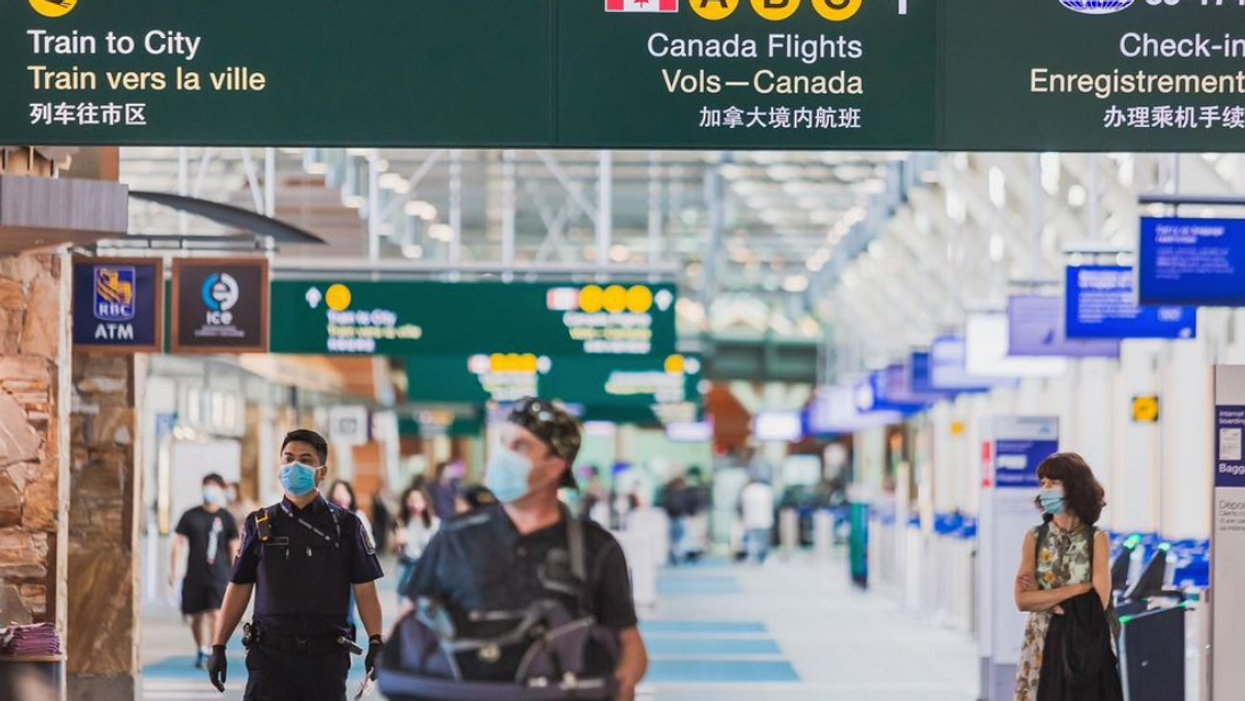Canada’s New Travel Rules Are Apparently Causing Serious Confusion At The Border
Officials are turning away travellers who do not qualify to enter the country.👇

Canada's New Travel Rules Are Apparently Causing Serious Confusion At The Border
An update to Canada's travel restrictions has caused confusion at the border this week, according to the Canada Border Services Agency (CBSA).
Officials told CTV News that the number of incoming visitors to Canada has been increasing since travel measures began easing for eligible Canadians, but many people have been turned away because they misunderstood the new rules.
"It's a question, I think, of folks not understanding the rules," an official from the CBSA explained.
Incoming traffic into Canada has increased by approximately 25% since some rules were waived for eligible travellers on Monday, although roughly half of these people had to be turned away.
The CBSA says that the majority of those rejected at the border had misunderstood the updated regulations and had either: failed to receive a full course of an approved COVID-19 vaccine, not waited 14 days after their last vaccine dose or received a vaccine not approved by Health Canada.
"The big thing for folks to understand is what qualifies as a fully exempted traveller under Canada's definition," officials added.
So who can actually enter Canada right now?
Canadian citizens and permanent residents who've received the full course of a Health Canada-approved COVID-19 vaccine are eligible to skip some travel measures.
They must have received the full course of one of the following vaccines: Pfizer-BioNtech, Moderna, AstraZeneca/COVISHIELD and Janssen (Johnson & Johnson).
Additionally, the last dose must have been received at least 14 days prior to entering the country.
All travellers must submit their details and a backup quarantine plan via the ArriveCAN app. Proof of vaccination must also be provided.
Fully vaccinated travellers must also continue to adhere to the rest of Canada's travel requirements, including pre-arrival and post-arrival testing.
What about international travellers?
Canada's borders remain closed to all non-essential travellers from abroad, including the United States.
Speaking on July 8, Prime Minister Justin Trudeau announced that it will be "quite a while" before unvaccinated tourists are given the go-ahead to enter Canada.
A ban on all discretionary international travel into Canada is set to expire on July 21, although this could be extended once again.
- Canada's Travel Restrictions: We Answered Your Biggest Questions ... ›
- Canada's New Travel Rules Will Start Next Week & Here's What You ... ›
- Canada's New Travel Rules Will Officially Begin On July 5 - Narcity ›
- Canada Travel Restrictions Could Loosen For International Travellers By The Fall - Narcity ›
- Canada's International Border: Rules Set To Be Eased In September - Narcity ›
- 5 Canadian Airports Will Reopen For International Travel Next Month - Narcity ›
- Canada Travel Restrictions Have Changed Airports Now, Too - Narcity ›
- Canada's Travel Restrictions Are Changing But Travel Advice Isn't - Narcity ›
- Travelling Outside Of Canada? Here's 7 Things You Need To Know - Narcity ›
- Americans Were Just Urged To 'Reconsider' Travel To Canada - Narcity ›
- I Just Flew From Toronto To California & Here's How COVID Restrictions Compare - Narcity ›
- Here's How To Avoid Getting Caught Up In Changing COVID Restrictions While Travelling ›